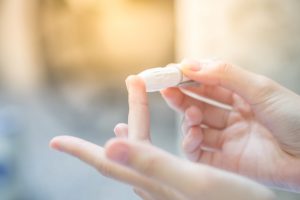 Rates of diabetes mellitus are increasing around the world. Hyperglycemia is one of the most prominent issues facing diabetics today and one of the more expensive burdens on healthcare systems. If hyperglycemia is left untreated, it can lead to retinal artery occlusion, which is a form of stroke in the eye due to blockage in the central retinal artery. For this reason, researchers sought to determine whether diabetes itself is an independent risk factor for the development of retinal artery occlusion.
Rates of diabetes mellitus are increasing around the world. Hyperglycemia is one of the most prominent issues facing diabetics today and one of the more expensive burdens on healthcare systems. If hyperglycemia is left untreated, it can lead to retinal artery occlusion, which is a form of stroke in the eye due to blockage in the central retinal artery. For this reason, researchers sought to determine whether diabetes itself is an independent risk factor for the development of retinal artery occlusion.
The researchers analyzed data gathered on 241,196 diabetes patients from the Taiwan National Health Insurance Research Database (NHIRD). The patients were matched by age and sex with controls of non-diabetic status.
Advertisement
The database collected data from 120,000 randomly selected diabetes patients each year between 1996 and 2013. The researchers also collected data on comorbidities, including hypertension, hyperlipidemia, congestive heart failure, coronary artery disease, and chronic renal diseases, all of which are risk factors for retinal artery occlusion.
Diabetes Doubles the Risk Of Retinal Artery Occlusion
The results showed that the participants with diabetes had a significantly higher rate of developing retinal artery occlusion than the control group. Out of all the participants, 317 cases of retinal artery occlusion occurred in those with diabetes mellitus and 144 cases occurred in the control group. After adjusting for confounders, they noted that the participants with diabetes had a 2.11 times risk of developing retinal artery occlusion compared to those without. The results were adjusted for age, sex, and comorbidities including hypertension, hyperlipidemia, congestive heart failure, coronary artery disease, and chronic renal disease.
This is the first study to concretely examine the relationship between diabetes and retinal artery occlusion. The study authors offer several hypotheses as to what the underlying mechanisms behind the relationship between diabetes and the development of retinal artery occlusion are.
“A pathogenic mechanism common to both retinal artery occlusion and diabetes mellitus is microvascular retinopathy including narrower retinal arterioles. The retina, which requires copious oxygen to function, receives oxygen-rich blood from the ophthalmic artery and divides into a microvascular meshwork of arterioles. Persistent blood sugar elevation leads to biochemical changes over the microvascular meshwork resulting in basement membrane thickening and increased collagen deposition in the arterioles,” write the researchers.
Advertisement
They also noted that the participants aged 65 and over had the highest incidence of retinal artery occlusion of anyone in the study in both the diabetes and control groups. Age remained one of the only independent risk factors after the results were adjusted for comorbidities and other demographic factors. After age, male sex was the most prominent independent risk factors for retinal artery occlusion. The researchers believe this may be due to lifestyle choices typically attributed to men over women. Many men actively engage in high-risk behaviors, such as drinking and smoking.
These factors could not be accounted for in the analysis as this information was not gathered as part of the NHIRD database data collection processes. Future research will be needed to measure their effects on the relationship between diabetes and retinal artery occlusion.
Also read:
- Home remedies to reverse age-related macular degeneration naturally
- Prevent age-related macular degeneration naturally with diet and nutrition
- 7 common habits that are harming your vision
